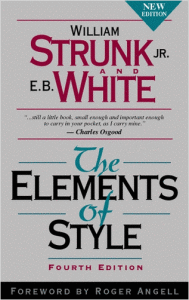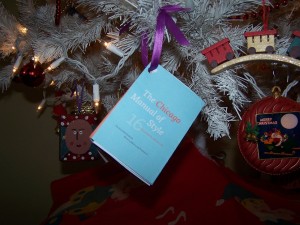 As much as we sometimes pretend we don’t, we love rules. Even the most maverick of writers is receptive to those clever, memorable guidelines, if only to know what to kick against. And the reality is that rules for writing—as for life, let’s face it—are not only abundant but are bewilderingly contradictory.
As much as we sometimes pretend we don’t, we love rules. Even the most maverick of writers is receptive to those clever, memorable guidelines, if only to know what to kick against. And the reality is that rules for writing—as for life, let’s face it—are not only abundant but are bewilderingly contradictory.
See, the thing about rules for writing is that, kind of like a yin-yang symbol, they always contain cute little seeds of their exact opposites. Witness the exhortations—from such authoritative guides as Strunk & White’s The Elements of Style and George Orwell’s Politics and the English Language—to err on the side of simplicity, to avoid in particular the pretensions of Latin- and Greek-based language in favour of good old Anglo-Saxon English (put simply and memorably: “avoid fancy words”). Plain common sense advice about plain common sense English, right? Well, yes and no. Outside the secret and no-doubt sordid fantasies of botanists everywhere, Orwell’s example of a snapdragon is still in no danger of being superseded by antirrhinum almost seventy years after he expressed his reservations. Similarly, ameliorate and clandestine have their place, even if we are more often inclined to use help and secret. Continue reading “Breaking the Rules”
Like this:
Like Loading...



